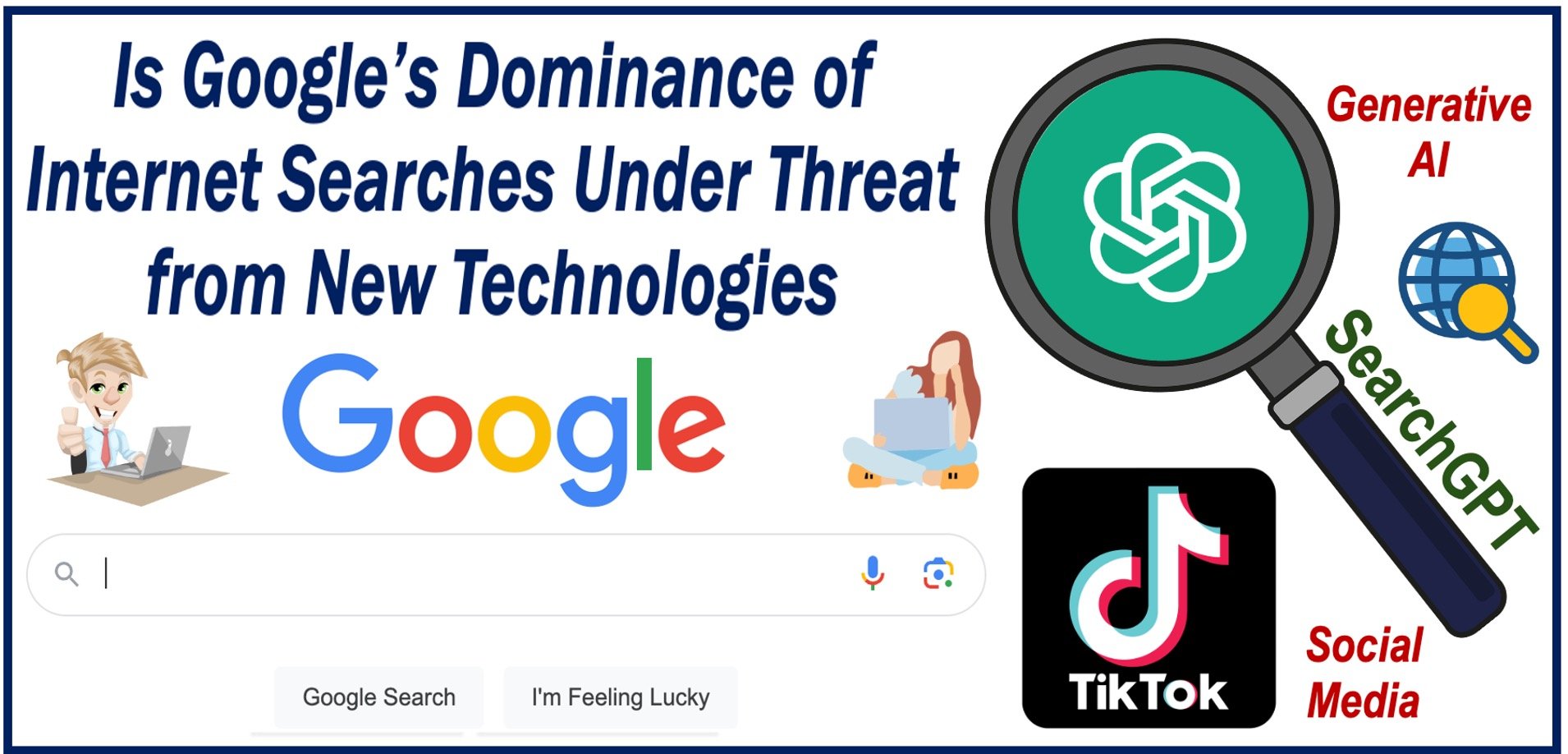Search Evolved: From Links to Answers
For over two decades, Google has reigned supreme in the search engine market, with its user-friendly design and powerful algorithms becoming synonymous with finding information online.
However, the landscape is shifting. The rise of *generative AI (Gen AI) and social video platforms like TikTok are challenging Google’s dominance, forcing the tech giant to adapt or risk being eclipsed.
* Generative AI creates new content (text, images, music) based on patterns it learns from existing data. Traditional AI analyzes data to make predictions or decisions.

AI Revolutionizes Search
Gen AI chatbots, like OpenAI’s SearchGPT and Perplexity AI, are shaking things up.
Unlike traditional search engines that return lists of links, these AI tools provide direct answers to user queries, eliminating the need to sift through endless results.
This shift in user behavior presents a significant threat to Google’s established model.
Social Media’s Growing Clout
Social media platforms like TikTok are also vying for a piece of the search pie.
With its short-form video format, TikTok allows brands to target consumers based on search queries, directly competing with Google’s core advertising revenue stream.
The Pressure on Google
These emerging competitors put immense pressure on Google to innovate. Here’s a closer look at the challenges Google faces:
-
Loss of Market Share
Google’s search market share is predicted to fall below 50% for the first time next year, according to eMarketer.
-
Shifting User Preferences
Users are increasingly seeking a more streamlined search experience, with direct answers taking precedence over long lists of links.
-
Content Availability
Licensing deals between AI platforms and major publishers could restrict access to content on Google Search, weakening its value proposition.
-
Internal Hurdles
Google’s focus on protecting its existing revenue streams might hinder its ability to fully embrace AI development.
Google’s Response
While Google has acknowledged the threat, its response has been cautious. The company has taken some steps, including:
- Integrating AI features like “AI Overviews” at the top of search results.
- Developing its own AI assistant, Gemini, for Pixel smartphones.
The Road Ahead
Google’s future hinges on its ability to adapt. Here’s what the company needs to do to stay ahead:
-
Embrace AI Innovation
Google needs to invest heavily in AI research and development to stay competitive with Gen AI leaders.
-
Rethink Search
The company needs to integrate AI seamlessly into search, offering a more user-friendly experience with voice and text options.
-
Solidify Content Partnerships
Google should secure partnerships with content creators to ensure information availability on its platform.
The Battle for Search
The fight for search supremacy is far from over. Google’s vast resources and user base give it an advantage.
However, the company needs to overcome internal roadblocks and embrace innovation to maintain its position in the face of a rapidly evolving search landscape.
About Google
Google LLC, often simply referred to as Google, is an American multinational technology company that specializes in internet-related services and products, such as online advertising technologies, search engine, cloud computing, hardware, and software.

It was founded in 1998 by Larry Page and Sergey Brin, former Stanford University Ph.D. students. In 2015, Google became a subsidiary of Alphabet Inc., a holding company.
Google’s headquarters are located in Mountain View, California, United States, and it has offices in more than 40 countries worldwide.
The company is known for its innovative products and services, including Google Search, Gmail, YouTube, Google Maps, Google Drive, Google Photos, and Android.
Google dominates the search engine market, with a market share of approximately 85% worldwide. It is one of the most valuable companies in the world and has had a significant impact on the way people access and use information.
